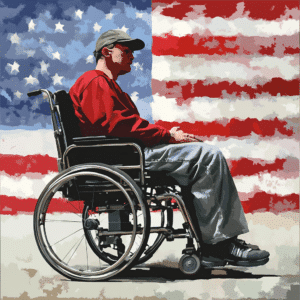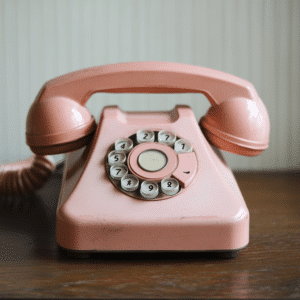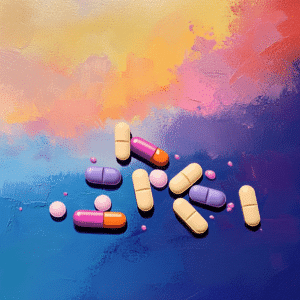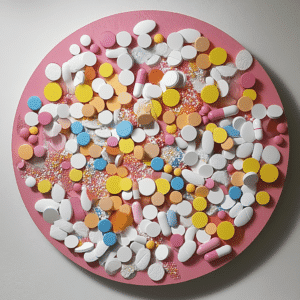Understanding the Importance of Sleep Hygiene in Recovery
In the challenging journey of addiction recovery, sleep is a crucial but often overlooked ally. There’s a deep link between sleep and recovery, and addiction can disrupt this important aspect of wellbeing. Sleep hygiene and recovery are entwined, as sleep influences our physical and mental health deeply. Research from the National Institute of Health (NIH) suggests individuals in recovery are significantly more prone to sleep disorders than the general population. Establishing good sleep habits is vital for boosting overall health, curbing relapse rates, and maintaining emotional balance.
Top 7 Sleep Hygiene Tips to Aid Recovery
| Aspect | Sleep Hygiene Tips | Relevance to Recovery | Benefits |
| 10-3-2-1-0 Rule | 10 hours before | Avoid caffeine and alcohol to improve sleep quality | Reduces sleep latency, minimizes nighttime awakenings, resulting in deeper, more restful sleep. |
| 3 hours before | No more food or drink | Prevents digestion-related sleep disruptions, improves sleep continuity. | |
| 2 hours before | No more work | Reduces cortisol levels, signaling the body to prepare for sleep. | |
| 1 hour before | No more screen time | Lowers blue light exposure, which can delay sleep onset by impacting melatonin production. | |
| 0 snoozes | Get up immediately | Encourages consistent wake-up times, helping to regulate circadian rhythm. | |
| Bed Use | Reserve for 3 S’s | Sleeping, Sex, Sickness | Helps create a mental association between bed and sleep, improving sleep efficiency. |
| Environmental Factors | Dark, Quiet, Cool Room | Promotes a conducive sleep environment | Enhances sleep quality by creating an optimal environment for rest. |
| Physical Comfort | Comfortable Mattress and Pajamas | Reduces physical discomfort during sleep | Helps maintain consistent, unbroken sleep, crucial for physical recovery. |
| Consistent Schedule | Same bedtime and wake time | Regulates body’s internal clock, easier to fall asleep and wake up. | Establishes a stable sleep pattern, essential for cognitive and emotional stability during recovery. |
| Stress Management | Meditation, Journaling | Reduces pre-sleep anxiety | Lowers cortisol levels, helping in faster and more peaceful sleep. |
| Sleep and Recovery | Quality Sleep Reduces Stress | Important for lowering cortisol, which aids tissue repair. | Promotes both mental health and physical healing crucial for recovery. |
Analyzing the Relationship Between Sleep and Addiction Recovery
Understanding the interplay between sleep hygiene and recovery provides crucial insights. A 2023 study by Johns Hopkins University found disrupted sleep patterns are a strong predictor of relapse in individuals recovering from opioid addiction. Integrating sleep hygiene practices into recovery programs becomes essential. Personalized sleep interventions and regular follow-ups should be integral parts of comprehensive addiction treatment plans. Sleep not only helps in lowering cortisol levels, which allows growth hormones to rebuild injured tissues more effectively, but it also reduces stress and improves mood, both critical in the recovery process.
Real-Life Success Stories: Empowering Parents and Families
Listening to those who’ve walked the tightrope of addiction recovery while emphasizing sleep hygiene offers relatable and inspiring narratives. Consider the story of Mark, a former addict who is now a counselor at Phoenix House. Mark credits part of his sustained sobriety to adopting sleep hygiene practices early in his recovery. By integrating a regular sleep routine with other recovery efforts, Mark stabilized his mood, reduced cravings, and strengthened his resilience against relapse. His testimony underscores the transformative power of mastering sleep hygiene in the recovery journey.
Charting the Future of Recovery with Sleep Hygiene
The future of addiction recovery increasingly embraces comprehensive, multi-faceted approaches where sleep hygiene is a cornerstone. New technologies, continuous research, and creative treatment strategies will further underscore the critical role of sleep in the recovery process. By diligently focusing on mastering sleep hygiene, we’re paving a smoother path to healing and resilience. For families and parents dealing with addiction’s fallout, integrating these practices can be a beacon, providing hope and tangible steps toward recovery.
In this ever-progressing journey, resources such as the Friendship Hotline, Mindful Meditation, and Self-compassion Practices provided by Mothers Against Addiction become essential. These aids offer invaluable support and guidance, helping families chart a course through the complex waters of addiction recovery.
Understanding sleep hygiene is not just about achieving restful night’s rest; it’s about laying a solid foundation for a healthier, more resilient tomorrow. If you’re seeking more insights on sleep hygiene and recovery, check out How long Does heroin last to broaden your understanding of the battle against addiction. Let’s propel our community toward a better, more restorative future—one night of good sleep at a time.
Sleep Hygiene and Recovery
Perfecting sleep hygiene and recovery isn’t just about a solid mattress or blackout curtains. It’s a mix of habits, environment, and consistency. Let’s dive into some fun trivia and fascinating facts that underscore the importance of great sleep hygiene on your recovery journey.
The Surprising Impact of Journaling
Did you know journaling can actually enhance your sleep hygiene? Regularly putting pen to paper, as discussed in the segment on Journaling in recovery, helps clear the mind, reduce stress, and improve sleep quality. Think about it: by channeling your thoughts and emotions onto paper, you create mental breathing space, which is invaluable for a restful night.
The Cost of Night Owling
Night owls beware! Burning the midnight oil doesn’t just mean missing a few hours of sleep—it can significantly impact your health and finances. Interesting trivia here, akin to How To avoid paying capital Gains tax on inherited property, highlights the hidden costs that add up when good sleep hygiene is ignored. From medical expenses to costly mental health impacts, the price of poor sleep can sneak up on you.
Staying Current in the Digital Era
In today’s digital age, staying connected is easier than ever. However, incessant scrolling and interaction, notably when you reply To a tweet Nyt style late into the night, can wreak havoc on your circadian rhythms. The blue light emitted from screens disrupts melatonin production, making it harder to fall asleep. So, integrating a digital detox into your nightly routine can vastly improve your sleep hygiene and recovery.
Non-Traditional Sleep Aids
Finally, let’s talk about some unique sleep aids. Beyond the typical recommendations, having a sleep routine strategy—similar to the concept of point buy for mortgages—can take your sleep game to the next level. Selecting the right tools and techniques tailored to your needs ensures a balanced sleep schedule. From specific bedtime teas to guided meditations, the right choices can significantly boost your healing process.
Good sleep hygiene and recovery are more than just concepts; they’re crucial components in the journey to well-being. By integrating these trivia tidbits into your routine, you can master the art of better sleep and enhance your overall recovery process.
What is the 10 3 2 1 0 rule for sleep?
The 10-3-2-1-0 sleep rule means no caffeine 10 hours before bed, no food or drink 3 hours before bed, no work 2 hours before bed, no screen time 1 hour before bed, and zero hitting the snooze button in the morning.
What are the 3 S’s of sleep hygiene?
The three S’s of sleep hygiene are Sleeping, Sex, and Sickness. This means reserving your bed strictly for these activities to promote better sleep habits.
What is the link between sleep and recovery?
Sleep and recovery are deeply connected; good sleep helps restore physical and mental health. Addiction often disrupts sleep, making it harder to heal, so getting enough rest is crucial for smoother recovery.
Why is sleep important in recovery?
Sleep is vital in recovery because it lowers stress, improves mood, and helps the body repair itself by lowering cortisol levels and allowing growth hormones to rebuild tissues. It supports both physical and mental health during the recovery process.
What is the 80 20 rule sleep?
The 80/20 sleep rule suggests you should get about 80% of your sleep in optimal conditions through good habits, while the remaining 20% accounts for unavoidable disruptions.
What is the golden rule of sleep?
The golden rule of sleep is to maintain a consistent sleep schedule by going to bed and waking up at the same time every day, even on weekends.
What is the 5 3 3 method sleep?
The 5-3-3 method of sleep isn’t well-documented in sleep science, but it could imply a segmented sleep schedule, although it’s not a commonly recommended practice.
What is the meaning of Sexsomnia?
Sexsomnia refers to a sleep disorder in which a person engages in sexual activities while asleep, often without any memory of it happening.
How to cure insomnia in 12 minutes naturally?
To cure insomnia naturally in 12 minutes, try a relaxation technique like deep breathing, progressive muscle relaxation, or guided imagery to calm the mind and body before sleep.
What is the best way to sleep for recovery?
The best way to sleep for recovery is to create a restful environment, stick to a consistent sleep schedule, and follow the 10-3-2-1-0 rule to maximize restorative sleep.
What stage of sleep is best for recovery?
The stage of sleep best for recovery is deep sleep, also known as slow-wave sleep, because it’s when the body performs most of its repair and regeneration work.
How many hours of sleep is optimal for recovery?
Optimal sleep for recovery is generally 7 to 9 hours per night for most adults, providing enough time for the body to complete its restorative processes.
Why is sleep so important for healing?
Sleep is crucial for healing because it reduces stress, boosts mood, and allows the body to repair tissues by lowering cortisol levels and producing growth hormones.
What time does the body repair during sleep?
The body primarily repairs itself during deep sleep stages, which typically occur in the first half of the night and include important restorative processes.
Does the body need sleep to recover?
Yes, the body needs sleep to recover, as it’s during sleep that the body performs vital maintenance and repair, essential for overall health and healing.
How to sleep better with the 10 3-2-1 trick?
To sleep better with the 10-3-2-1-0 trick, cut off caffeine 10 hours before bed, stop eating or drinking 3 hours before, finish work 2 hours before, turn off screens 1 hour before, and avoid hitting the snooze button in the morning.
What is the 10 3-2-1 0 rule for sleep on Reddit?
The 10-3-2-1-0 rule on Reddit describes the same steps: no caffeine 10 hours before bed, no food or drink 3 hours before, no work 2 hours before, no screen time 1 hour before, and zero snoozing in the morning.
What is the 5 4 3-2-1 sleeping method?
The 5-4-3-2-1 sleeping method isn’t commonly recognized in sleep science, but similar methods focus on relaxation and mindfulness techniques before bed.
What is the 321 method of falling asleep?
The 321 method of falling asleep means turning off screens 3 hours before bed, completing chores or work 2 hours before bedtime, and practicing relaxation techniques 1 hour before sleep to enhance readiness for rest.




























